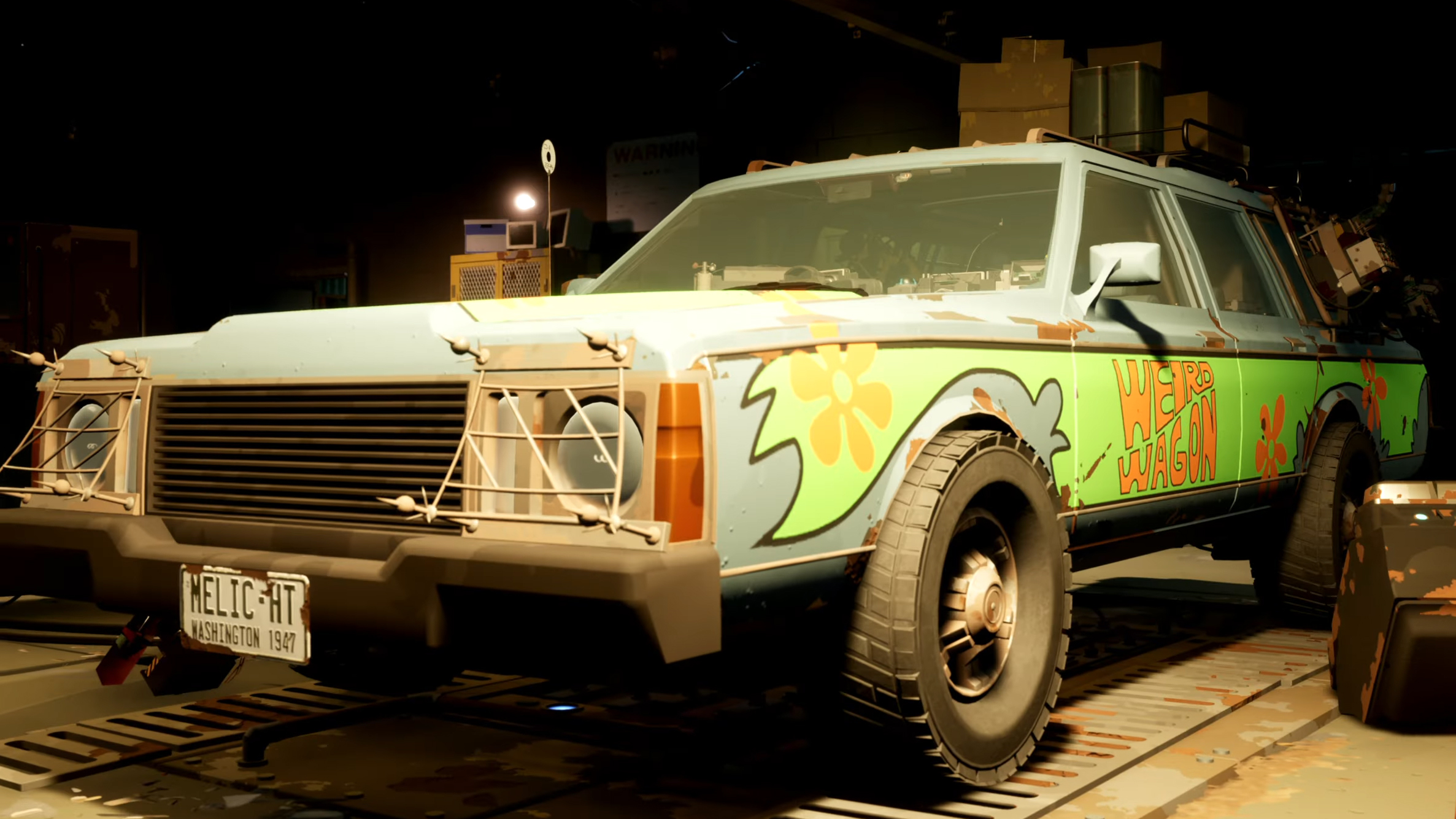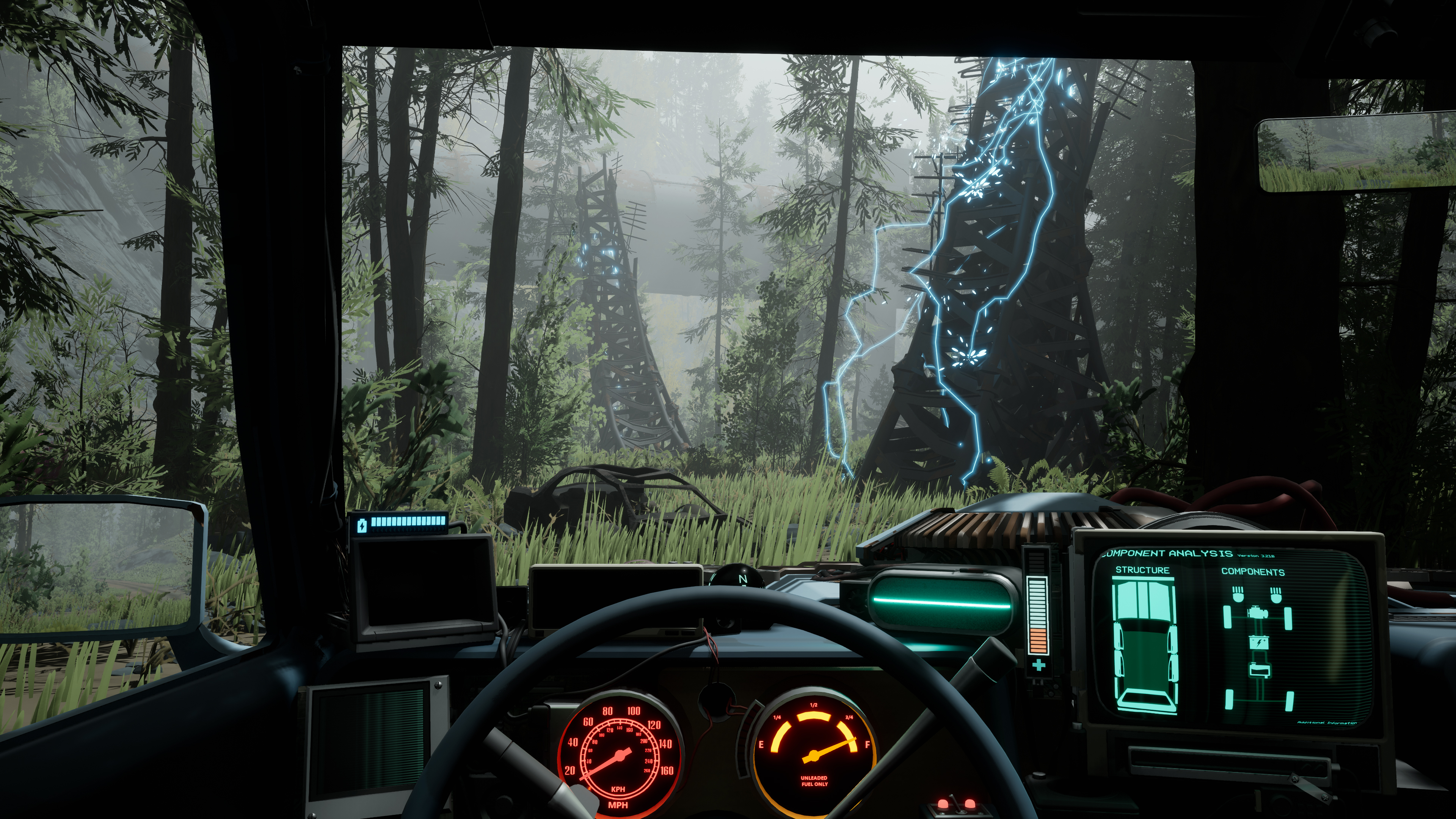How 'driving survival game' Pacific Drive is being built for people who don't like survival games
Ironwood Studios game director Seth Rosen talks to us about smoothing out the bumps in the road.

"I've been working on survival games for quite a while," says Seth Rosen as we chat over Zoom. "Funnily enough, I don't like them."
That is pretty funny, because Rosen was technical designer for Klei Entertainment's Don't Starve: Reign of Giants and project lead for Don't Starve Together, eternally one of the most popular games on Steam. Now he's game director at Ironwood Studios, working on first-person driving survival game Pacific Drive, which launches on February 22. That's a lot of survival for someone who doesn't like survival.
But it becomes clear during our chat that it's actually just certain aspects of survival games Rosen doesn't care for, and he's doing his best to avoid them in his new game.
In Pacific Drive you find yourself stranded in the Olympic Exclusion Zone, a walled-off portion of the Pacific Northwest where the government's shady experiments went horribly wrong. Now the winding roads and dark woods are filled with so many dangerous anomalies it makes Stalker's exclusion zone feel like a stroll through Dreamlight Valley. The only way to escape is by driving a quirky customizable station wagon deeper and deeper into the zone, collecting resources along the way to upgrade and outfit your car with sci-fi gizmos and gadgets.
"Honestly, a lot of my pet design things that we put into Pacific Drive were aimed at smoothing out the things that really bugged me about survival games," Rosen says. "Inevitably there is a little bit of a resource grind, but I wanted to make sure that, especially given how much of a focus we have on driving, the survival aspects of the game don't take too much away from that. The heart of the game is the car, and driving it, and taking care of it. And the survival crafting stuff is there to support that."

One of the things Rosen doesn't like about survival games is all the inventory management and storage issues that come along with collecting so many resources.
"As an example, when it comes to crafting, your materials are pulled from all the containers that are local to where you are. So if you have stuff stored in the garage, it'll pull from that automatically. If you're out on the road, it will pull from your car storage automatically. I find it incredibly tedious to shuffle items around in order to craft things, so we just didn't do it."
Keep up to date with the most important stories and the best deals, as picked by the PC Gamer team.
I did find it convenient that no matter where I stored stuff in the demo I played earlier this month, the game treated it as if it were one big box—even when my containers were in different rooms of the garage. Another handy shortcut is the shop-vac: a massive vacuum that will automatically suck up any scrap metal, rubber, chemicals, and any other components lying anywhere in or around the exterior of the garage. That's a big help because it's easy to misplace spare parts when you're working on the car. Almost every time I activated the shop-vac it'd hoover up something I missed.

"Similarly, I find it tedious to go hunt down the refined item in the crafting menu in order to craft some higher tier thing that requires some intermediary," Rosen says. "So, you can just find the thing that you want to craft and hold the button down, it'll make all the requisite pieces before it then makes the final thing."
This does make crafting a lot more convenient. I noticed in the beta that in order to craft a new headlight for example, I'd first need a spare bulb. If I didn't have one but had the resources needed to craft a bulb, I wouldn't need to make it separately: I could do it right there in the headlight crafting menu.
You have your hands so full just taking care of the car, you really don't need an additional time pressure and distraction.
Seth Rosen, game director
Another interesting aspect of Pacific's Drive survival systems is how they almost entirely involve the car, and not so much the person driving it (you). You have a health meter but you don't need to eat, drink, or sleep as in most survival games. I asked Rosen if Ironwood Studios had ever considered adding more survival systems to the player and not just the car.
"I've got pages of notes about what it would look like if we changed our radiation damage to be an exposure meter that, once it's high, takes down your health and it's something that you have to cure," Rosen said. "And what we found even just like going through the thought experiment was that you have your hands so full just taking care of the car, you really don't need an additional time pressure and distraction.
"And obviously that is enhanced by the level of tech in the driver's view when you're in the cab," Rosen says. "There's a lot on screen and a lot to keep track of. We just found that even without those mechanics, there were plenty of times where players were losing track of even just their health and having failed runs because of that. So we backed off of it."
It's possible that may change post-launch: Rosen told me adding more survival systems to the player is "something we may still look at for some kind of hardcore mode," but for now the survival experience is almost entirely focused where it should be: on that funky sci-fi station wagon.
"Of [my] pet peeves about the usability and smoothness of survival games, [we] tried to address as many of those as we can," Rosen said. "I'll certainly allow that there's plenty of complexity and fiddliness within our game just the same. But hopefully that tends to land more on the car and car maintenance side of things, which I think is the more interesting part of the game."
You can check out a demo of Pacific Drive at Steam Next Fest from February 5-12.

Chris started playing PC games in the 1980s, started writing about them in the early 2000s, and (finally) started getting paid to write about them in the late 2000s. Following a few years as a regular freelancer, PC Gamer hired him in 2014, probably so he'd stop emailing them asking for more work. Chris has a love-hate relationship with survival games and an unhealthy fascination with the inner lives of NPCs. He's also a fan of offbeat simulation games, mods, and ignoring storylines in RPGs so he can make up his own.

